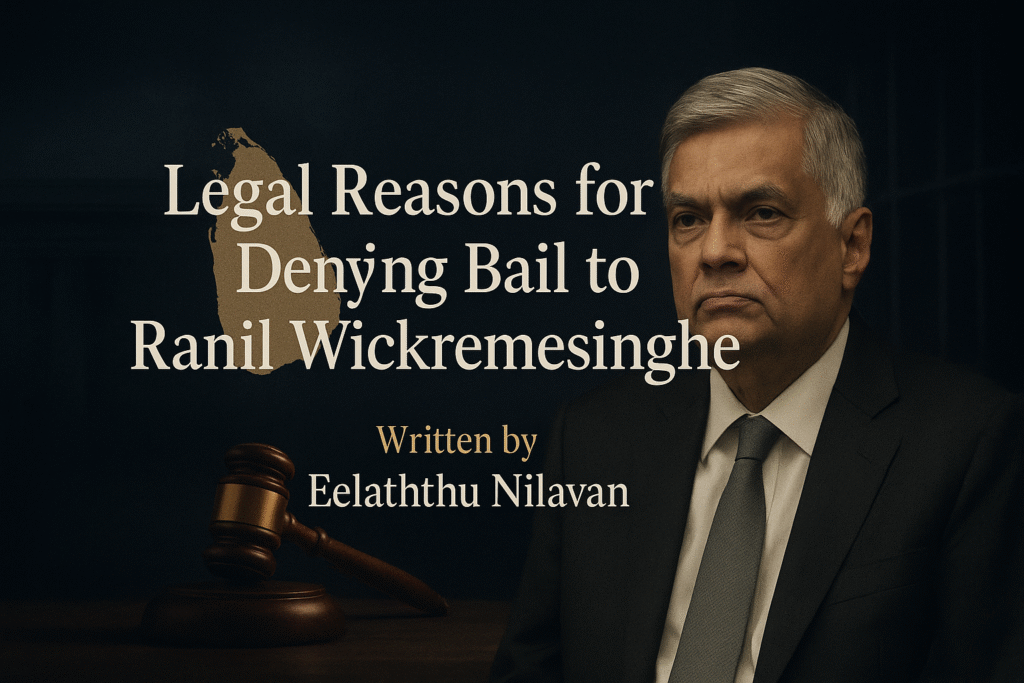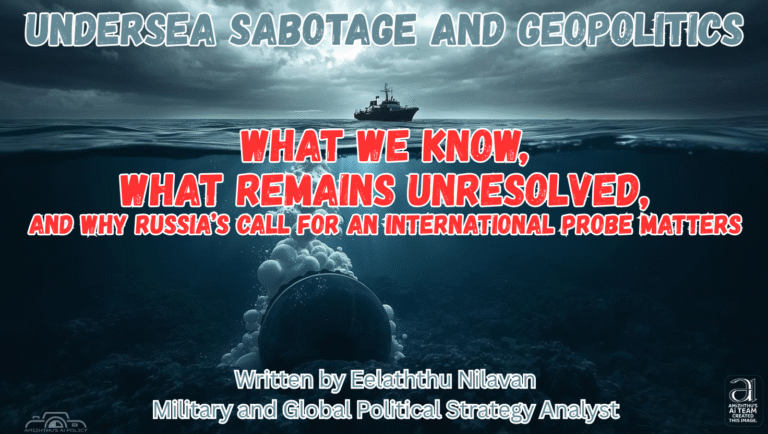A Legal Perspective on the Refusal of Bail to the Former President

✦. What is Bail?
Bail is an integral part of criminal procedure. It refers to the temporary release of an accused person from custody, pending trial, under conditions imposed by the court.
However, under Sri Lankan law, certain offences are classified as “non-bailable”, meaning bail cannot be granted except under very limited circumstances.
✦. Relevant Legal Provisions
1. Code of Criminal Procedure Act, No. 15 of 1979
Sections 14 and 15 of the Act classify offences into bailable and non-bailable offences.
2. Public Property Act, No. 12 of 1982
Under this Act, any offence involving misappropriation of public funds or state property, especially when the amount exceeds Rs. 25,000, is treated as a non-bailable offence.
In such cases, bail can only be granted if the accused can establish “exceptional circumstances.”
✦. Circumstances Where Bail is Refused
Sri Lankan courts generally refuse bail in the following situations:

︎ Serious Nature of the Offence
Crimes such as murder, drug trafficking, firearms offences, and large-scale financial fraud.

︎ Risk of Witness Tampering
If there is a likelihood that the accused may threaten witnesses or destroy evidence.

︎ Possibility of Absconding
Given the seriousness of the charges, the accused may attempt to evade court proceedings.

︎ Cases Involving Public Property
Offences under the Public Property Act, particularly those involving large sums of public funds.
✦. The Case of Ranil Wickremesinghe
As a former President, Ranil Wickremesinghe enjoyed immunity from prosecution during his term of office. However, this immunity ceased once he left office.
Therefore, when facing criminal charges, he is subject to the same legal process as any ordinary citizen.
In this instance, it is alleged that Rs. 166 million in state funds were misused for personal travel.
This falls directly under the Public Property Act, making it a non-bailable offence.
Thus, bail can only be considered if “exceptional circumstances” are demonstrated before the court.
✦. Case Law Precedents
Attorney General v. Sirisena Cooray (1992)
The Supreme Court held that in cases under the Public Property Act, bail cannot be granted unless exceptional circumstances are proven.
Attorney General v. Punchibanda (1993)
Bail was refused in a case involving public fund misappropriation.
These rulings confirm that bail is severely restricted in Public Property Act cases.
✦.Conclusion:
Therefore, even though Ranil Wickremesinghe is a former President, the charges of misappropriation of public funds make it legally possible—and fully justified—for the courts to refuse him bail.
This reinforces the principle that all individuals are equal before the law, and political power does not guarantee immunity from legal accountability.

Written by
Eelaththu Nilavan
23/08/2025




